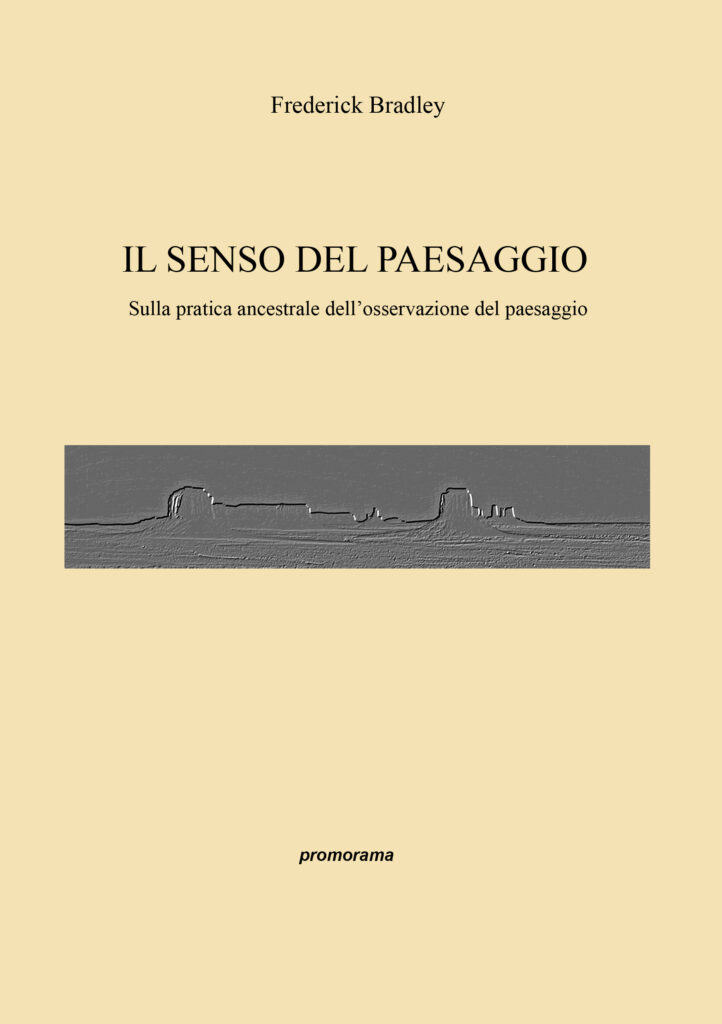
Is there a sense of landscape? This is the question the author asks himself after having noted a strong correspondence between the sensations that landscape observation arouses in modern man and the information that primitive man must have drawn from the same practice. The hypothesis formulated involves all the aspects, and therefore the disciplines, that come into play in landscape observation: from ecology and human paleontology to neuroscience, from geology and botany to environmental aesthetics, offering an unprecedented holistic vision of landscape interpretation and a contribution to the definition of its qualitative evaluation.
“IL SENSO DEL PAESAGGIO” by Frederick Bradley is an excellent example of an approach to the study of complex systems within which the landscape is placed from an epistemological point of view. The landscape is understood as an organized space within which the resources necessary for life for every living organism are recognized through semethic mechanisms. In particular, the landscape takes on the full meaning of an “informative” organized space when perception and interpretation are exercised by the cognitive component of higher animals, including humans. Cognition then becomes an interpretative tool, through its own genetic and cultural templates of the signs that the resources and the context in which they are placed, express. Frederick Bradley’s work fits well into this line of thought that sees the landscape as a perceptive entity and a subjective entity, where aesthetics and beauty are eco-semiotic mediators of resources and not simple expressions of the spirit.
Prof. Almo Farina, Professor of Ecology, University of Urbino.
The light and appropriate style of the best popularization distinguishes the work of Frederick Bradley, in which the passion for the study of landscapes and the experience of his constant practice are ingredients that are always present and never heavy. Although, in the discussion he proposes, the author highlights how his exploration of the “sense of landscape” is not supported by “proof”, the articulated hypothesis is one of those that do not go unnoticed. The interpretative key proposed presents two important qualities in landscape studies. It refers to features of the landscape that are material, relatively stable or recurrent in space and time and easily detectable. Furthermore, it expresses a holistic conception, in which the physiographic, ecological, biological, historical and scenic reasons of the observations contribute to the unity and richness of the reading. Research can welcome with the favor that is due to ideas the original openness of this work.” Arch. Gabriele Paolinelli – Professor of Landscape Architecture at the University of Florence
An interesting analytical exercise and a very welcome invitation to reclaim our senses and connect them to our experience
Prof. Paolo Bàrberi, Land Lab, Scuola Superiore Sant’Anna, Pisa

Leave a Reply